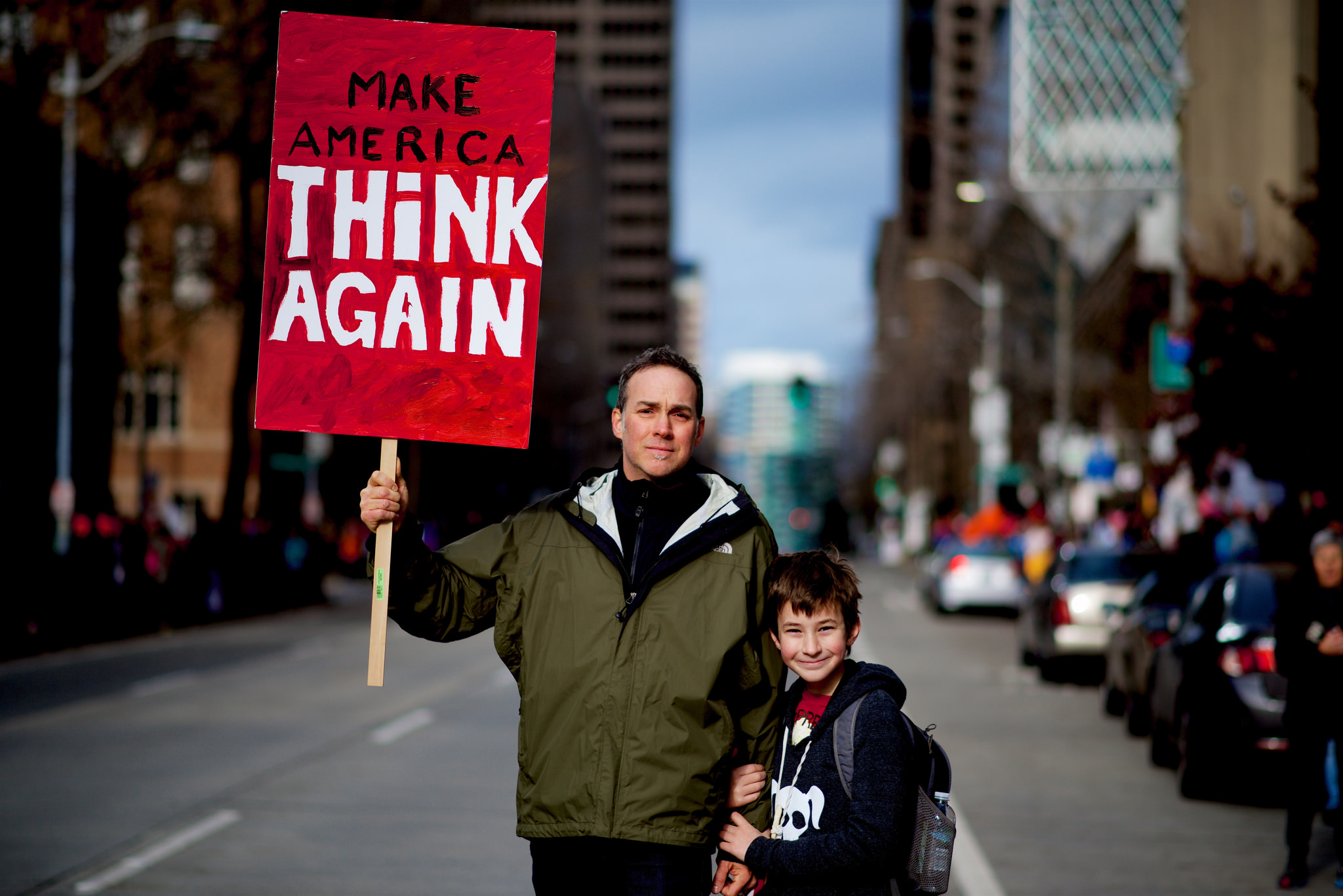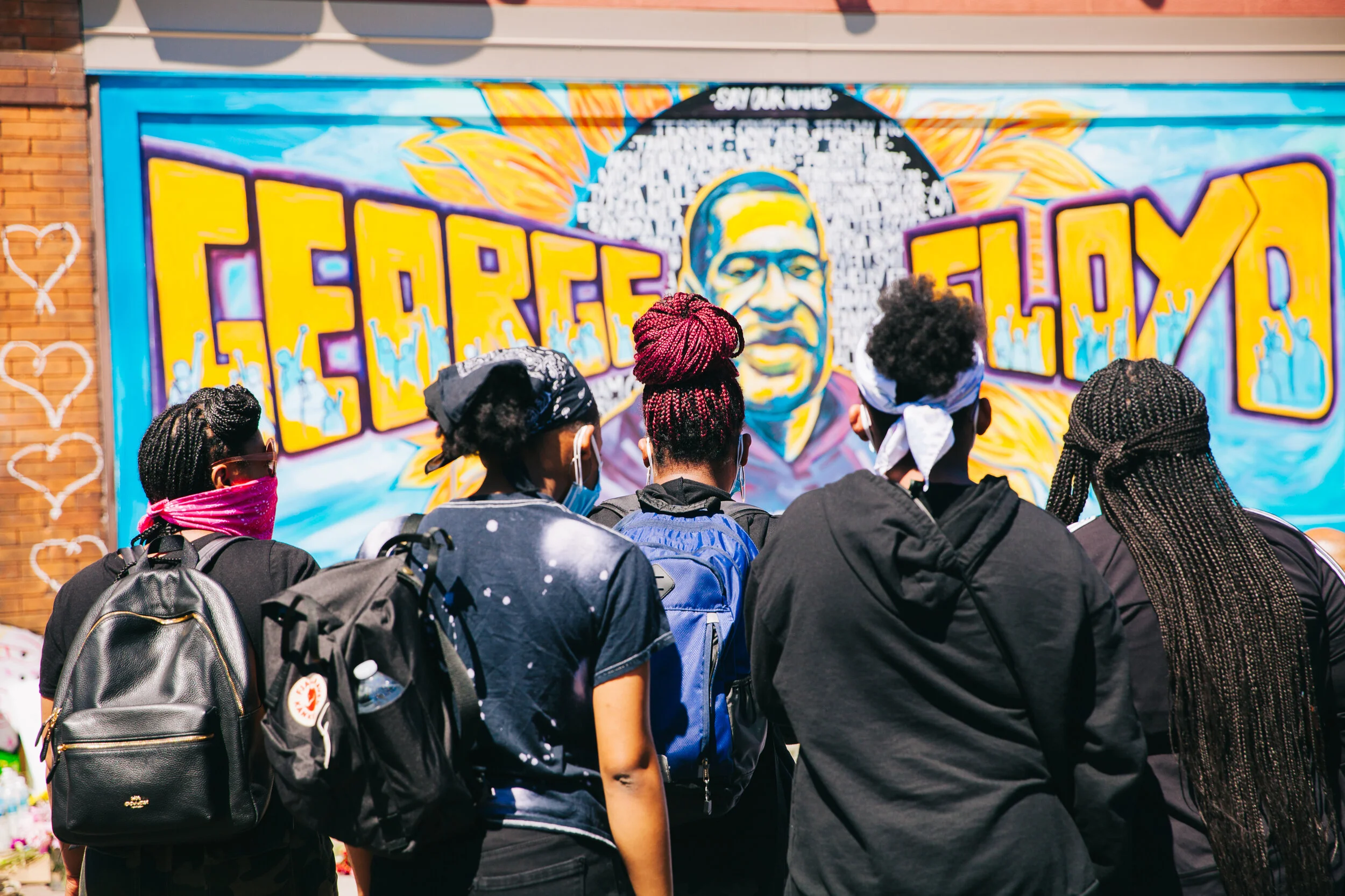"No Time for Business as Usual." How a Progressive Funder is Changing in the Trump Era
/The Trump administration has posed a unique challenge to the liberal, and even moderate, philanthropic community. Funders are being pulled between staying the course with existing programs and rushing to meet new needs that seem to emerge daily.
Some have launched new programs, such as funding for journalism or defending against hate crimes, sometimes with a healthy dose of spin for fear of seeming too political. Several have set aside pools of rapid response funds. And some of the biggest philanthropic responses to Trump, (or so we’re hearing), are happening quietly in the background.
Overall, the reaction of many funders to Trump's rise might be called "status quo plus"—i.e., sticking with current priorities while undertaking limited new grantmaking. The Barr Foundation is a good example. It's an even keeled funder that steers clear of ideological positioning, but nevertheless has felt moved to action. In late March, Barr launched a special initiative to respond to "dramatic shifts in the national context, to increased polarization, and to growing concerns about equity and opportunity for vulnerable populations." The new funding is supporting "frontline organizations" working with vulnerable communities, promoting human rights, and protecting civil liberties in Massachusetts, as well as backing "investigative journalism and protections for freedom of the press."
A few years back, Barr's president, Jim Canales, explained to Inside Philanthropy that one of the top tensions in a foundation is between focusing on long term goals and yet being nimble enough to respond to new circumstances. After Trump's inauguration, Canales reprised this same point in a blog post in February, entitled "In Changing Times, Philanthropy Must Adapt." He said that "the most effective strategies are never static," and "must be refined and adapted based on what we learn along the way, and in response to change." Canales affirmed Barr's long-time core areas of grantmaking and strategies, but said the foundation needed to step up beyond these priorities because "the moment compels us to engage."
Related:
- What One Funder Learned From Its Post-Election, Rapid-Response Giving
- We Knew Trump Was Good For Nonprofit Journalism, But This Is Getting Ridiculous
For the Nathan Cummings Foundation, Trump's election has induced a deeper rethinking. One lesson they’re learning since November is, “How we do our philanthropy may prove to be just as important as what we do with our philanthropy.”
A concrete way that’s taking shape is that NCF has decided to up the percentage of its assets that it pays out annually, in response to the election and resulting threats. President Sharon Alpert made the announcement in her latest “letter to the field,” and the foundation specified to IP that it will increase its payout rate from its usual 5.75 percent of its endowment (federal requirement is 5 percent) to 6.75 percent in 2017 and 2018. That might not seem huge, but based on the foundation’s assets of around $460 million in its latest tax filing, the difference could end up in the ballpark of $5 million more per year.
(Rockefeller Brothers Fund is another progressive funder that has decided to up its annual payout to respond to threats posed by the Trump administration, as RBF president Stephen Heintz told Marc Gunther in a recent interview. Among other things, RBF has created a $1.5 million “urgent opportunities” fund.")
In addition to the payout increase, NCF is making changes to internal processes, and generally working to be nimbler and more responsive along the way.
NCF, which currently has two main priorities of climate change and inequality, is a longtime progressive funder that’s been known to try and zig where others zag. They’ve had some conflicts, in fact, regarding where exactly to zig, judging from the leadership and strategy shakeups the foundation has endured in recent years.
The foundation seems to have stabilized under Alpert, who in 2015 came from the Surdna Foundation, another national liberal funder with a similarly family-centric board. NCF has been placing a strong emphasis on building power in communities, and the need for racial and economic justice.
Related:
- In the Climate Change Fight, a Foundation Puts a New Focus on the Role of Communities
- A Perfect Fit? Sharon Alpert and the Nathan Cummings Foundation
- Why Did Simon Greer Get Fired from the Nathan Cummings Foundation?
When we last spoke with Alpert in November, we were still working through the shockwaves immediately following Trump’s election, and we asked some prominent left-leaning funders how they were planning to respond. Alpert gave us some compelling insights, and we’re starting to see them take effect in the foundation’s work. In particular, back then Alpert said the foundation was looking at ways it could be more supportive of its grantees, and that’s now coming to fruition with the payout increase.
Related: "Everything We Care For." The Future of Progressive Philanthropy Under Trump
It’s worth noting that Inside Philanthropy isn’t zealous on too many issues, but it’s fair to say that increasing payout amounts is one of them. Private foundations far too often use the 5 percent rule as both a floor and a ceiling, and they can even weasel out of that by counting some administrative expenses toward the total.
In particular, we’ve been encouraging foundations that back work in climate change to use larger portions of their endowments given the gravity of the situation. The Trump administration would certainly be another worthy qualifying event.
So the fact that NCF is publicly setting out to increase payout—and acknowledging the 2016 election and various consequences of the Trump administration as motivation—is good to hear. They’re also planning to encourage others to follow, hoping to serve as an example.
Related: Dear Climate Funders: The Clock is Ticking. Use Your Endowments
In addition, Nathan Cummings has decided to change some of its other internal practices to streamline giving, according to foundation Director of Communications Artealia Gilliard. For example, while most grants must be approved by the board, the foundation allows for some discretionary grants, and they’ve decided to increase the size of that budget and the types of funding allowed in order to move money more quickly.
Finally, according to another of Alpert’s recent letters to the field, they’re putting a big emphasis on getting out of the board room and getting closer to the problems they are taking on, listening more carefully to those most impacted by the problems at hand. Alpert called this “getting proximate” back in our November interview, inspired by the words of Equal Justice Initiative Founder Bryan Stevenson.
As Gilliard points out, all of these actions are part of a larger recognition by the board and leadership that they need to get better at “being in the moment,” listening to what’s happening and responding, and learning how to do things differently along the way.
This focus on improving the overall approach to grantmaking is an encouraging form of response we’ve seen since November, something we highlighted recently regarding the Whitman Institute's post-election giving. Nonprofits need foundations to be more courageous right now. And hopefully some of these changes we're seeing (not unlike the public’s surge in activism) will stick well after the crisis we're in.
As Whitman’s Pia Infante put it, it’s time to “match the moment, and take this opportunity to let go of our worst habits."







































